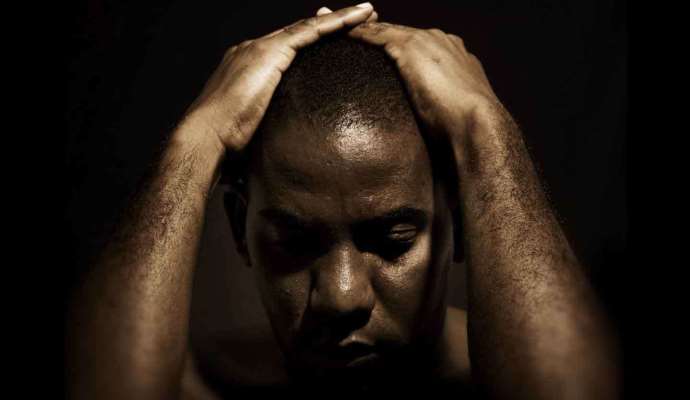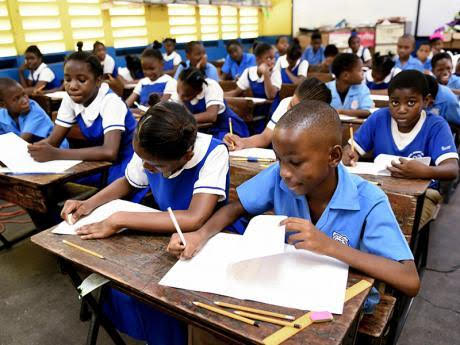
“Hey man, cool it! Why are you so angry?”
That question, no doubt, is asked by different people, in different situations, and at different times in this world every single day. What is annoying is that when the answer is given people keep asking the same question — over and over again. When they do so it suggests that they either were not listening, or that the answer given was viewed as trite, or not understandable at all. Why ask a question if you are not interested in the answer? In such frustrating circular conversations this writer would understand if some people would default to the following lyrics written by the late Reggae artiste Bob Marley, as a response out of resignation:
“There’s a natural mystic
Blowing through the air
If you listen carefully now you will hear
This could be the first trumpet
Might as well be the last
Many more will have to suffer
Many more will have to die
Don’t ask me why”
White America — whether with an aura of confused sublimity or with one of mindless flippancy — often refer to Afro-Americans as “Angry Black men” or as “Angry Black women.” These wattle and daub generalities are ascribed to Blacks whether they were genuinely angry at someone or something, or just asserting themselves in respect to matters which would be of concern to anyone who had to endure the same trespass. The false impression created is that Afro-Americans, as a race, are more disposed to undue anger than those in other races.
Whether this is a bonafide phenomenon endemic to Afro-Americans, or an alien abstraction foisted upon them by white society, it is, nonetheless, a subject of discussion and debate. The following titles of articles and of programmes over the years pulled from the Internet illustrate this point:
“Emmanuel Acho on the myth of the ‘Angry Black Man’”,“‘Angry Black Man’ Stereotype”, “NAACP explains the ‘Angry Black Person’ bias”, “Even discussing ‘angry black man’ stereotype provokes anger”, “The angry black man”, “I’m Finally an Angry Black Man”, “The cry of an angry Black man in a world sick with racism”, “The Modern Mammy and the Angry Black Man: African American Professionals’ Experiences with Gendered Racism in the Workplace”, “Obama and the ‘Angry Black Man’ Factor”, and “12 Angry Men: A Conversation on Being a Black Man in America”.
The Bible admonishes its adherents to “be angry and sin not.” Though it is all right to be angry, from God’s point of view, it seems that some vice is always at play every time Black people take umbrage to something that would elicit the same reactions from other races. Some sort of psychosis is implied when they choose not to smile, or to laugh, or to dance when white America chooses to do so. On the other hand, white America says nothing about their fears whenever they are in close proximity to Black people. It is a fear which engenders a “gun mania” and chronic “itchy trigger fingers” — whether Black people bear arms or not. As it is open house on the mental states of Americans in the 21st century, do not these inexplicable, unhinged “anxiety attacks” of some whites — to use a more euphemistic expression — warrant an appointment with a psychotherapist?
Is it really Black people who are beset with a spirit of roiling, unrelenting and unbridled anger, or is the problem due to delusions of them entertained by white America — which comprise some sort of Negrophobia? Whether or not what is said of Black people is symptomatic of a psychological transference of white guilt about, or of white disquiet around, or of white angst towards them, or of all of those maladaptive behaviours combined, there is enough evidence to suggest that these are very real possibilities.
The Black man’s sexuality, for example, as recounted from the annals of history, has long been exaggerated by white America to that of a large and powerful brute with a virility that ever threatens white maidenhood. This unfounded fear has led to the deaths of many unsuspecting, innocent Black men through lynching and castration. This was the sort of anxiety which led to the murder of 14-year-old Emmett Till by white men for allegedly whistling at the wife of one of them in 1955. The picture painted of the sexuality of Black women has also led to tragic outcomes for the Black woman and the Black community.
An article published online by Vox, in March of 2017, revealed that “people see black men as larger and more threatening than similarly sized white men”. The author made reference to seven studies that were published by the American Psychological Association to support his argument. The author wrote:
“The seven studies, conducted by researchers John Paul Wilson, Nicholas Rule, and Kurt Hugenberg, used a series of tests to get people to link people of different races to different body sizes and the potential meaning of those body sizes.
In six of the studies, hundreds of participants were tasked with connecting a man’s face to body size, the potential harm a man could inflict, and whether use of force against that man would be justified in case of an altercation. In the seventh study, participants were asked to estimate a headless male body’s size based on a colour-inverted picture (to remove racial identifiers), but some participants were primed to believe — through a stereotypically black or white name or through a picture of a person’s face — that the body picture was of a white man while others were primed to believe it’s a black man.
Throughout all these tests, researchers produced the same results: When participants believed the man in the images is black, they generally saw the man as larger, more threatening, and potentially more harmful in an altercation than a white person. And they were more likely to say use of force was justified against the black men than the white men.
Again, the men in these pictures were roughly the same size. One of the studies in the series even made sure the men even had similar bench press records. Yet identical and similar bodies were often equated as larger and more threatening strictly because the man was perceived as black instead of white.”
Assuming that white America is correct about the anger of Black Americans, that it does constitute a serious malady of psycho-social origins — then from whence all this unnecessary and unhealthy affect?
Could it be due to the thousands of lynchings of Black men, women and children across the U.S. from 1880 through 1961 to the present? Could the massacre of Black men, women and children and the wanton destruction and theft of their properties in East Saint Louis, Illinois in 1917 have anything to do with it? Could the massacre of Black men, women and children, and the mass arrests of the same in Elaine, Arkansas in 1919 have anything to do with it? Could the massacre of Black men, women, and children and the destruction of properties in Tulsa, Oklahoma in 1921 be a factor?
What about racial profiling? What about Black people being shot and killed routinely while at traffic stops for broken tail lights or expired tags? What about while selling cigarettes on the corner, while sleeping comfortably in one’s bed, or while praising the Lord in a worship service at church? What about voter suppression? What about no jobs, low-paying jobs and about always being the last hired and the first fired? What about the exasperation of some reading this article because they are tired of this litany of complaints or of the aggravation that they cause just hearing about them again? Why are we angry? Don’t ask me why.



